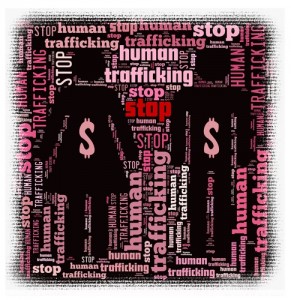World News
American Samoa passes first anti human trafficking law after unsuccessful attempts
PAGO PAGO, American Samoa – Legislators in American Samoa have approved the territory’s first anti-human trafficking law after several unsuccessful attempts over more than a decade.
Gov. Lolo Matalasi Moliga, who initially proposed the bill, is expected to review it when he returns to the territory from Honolulu by the end of this week.
Deputy Attorney General Mitzie Jessop said she is relieved and excited about the bill passing because it gives prosecutors another tool in addressing human trafficking cases. Jessop drafted the bill and testified during legislative hearings.
“Since I’ve been in the attorney general’s office, I have seen a lot of cases that have come through our office that I cannot prosecute those cases because I have no laws,” she said.
The bill makes human trafficking illegal under penalty of five to 10 years in prison, with a mandatory 10 years if the trafficking involves a minor, Jessop said. She said prosecutors previously had to depend on other statutes to prosecute cases where there is clear evidence of human trafficking.
The territorial Senate approved the measure last week. It passed the House late last year.
Ipu Avegalio-Lefiti, an advocate against domestic and sexual violence, said the law will raise awareness about behaviours that can finally be identified as human trafficking.
“It is empowering to know that these behaviours are now criminal activities. The lack of this bill just encourages many of our people and business owners to feel, that it is their right or their duties, to hold persons or families in domestic bondage or slavery,” said Avegalio-Lefiti, vice-chairwoman of the Multi-Disciplinary Team, an advocate group against family violence. “The bill was slow in coming, thank God it has finally arrived.
”
One of the bill’s supporters, territorial Rep. Taotasi Archie Soliai, said the bill is a good first step to ensure disgraces of the past aren’t repeated.
“In our not-too-distant past, our local community was tainted and ridiculed in the most horrific cases of human trafficking in the history of the United States, by the profiteering acts of a mindless few,” Soliai said.
In one case, the South Korean owner of the now defunct Daewoosa Samoa garment factory and three Samoan employees were convicted in federal court of enslaving more than 200 workers from Vietnam, most of them women.
More recently, an American Samoan man was accused of bringing three women to the territory from neighbouring Samoa, then forcing them to perform sex acts on him.
Soliai said that while the territory’s Constitution prohibits slavery and involuntary servitude, the new bill criminalizes trafficking and offers relief and support services for victims.
The bill also mandates a human trafficking task force to collect data on human trafficking and recommend policies and procedures.
The bill would become law in 60 days if the governor signs it.






















